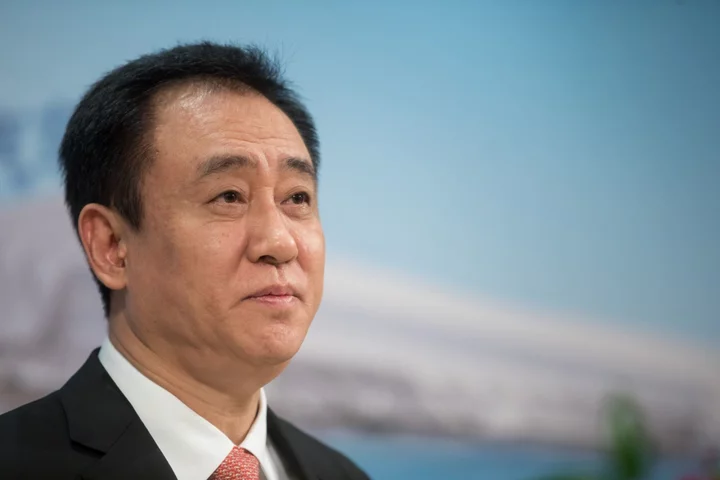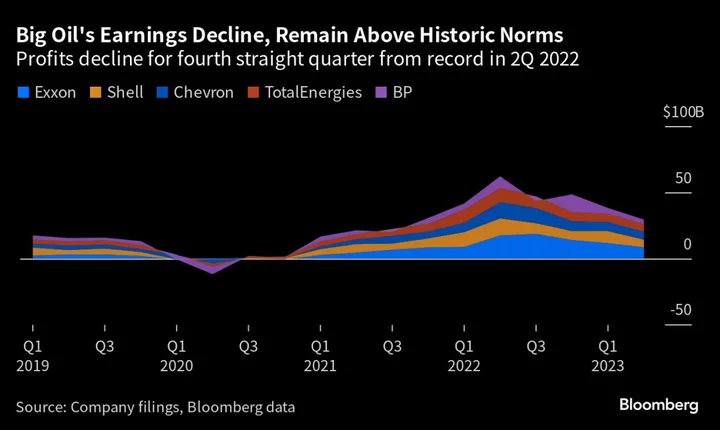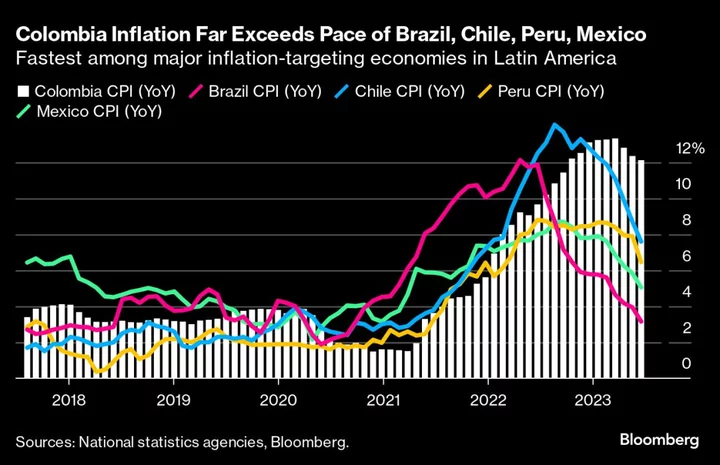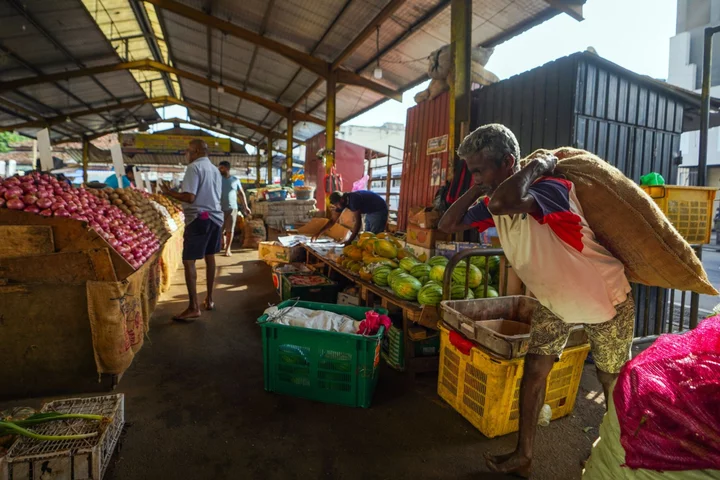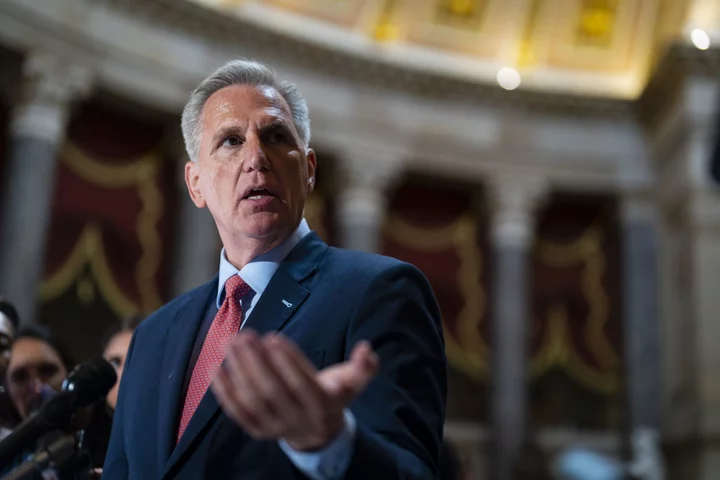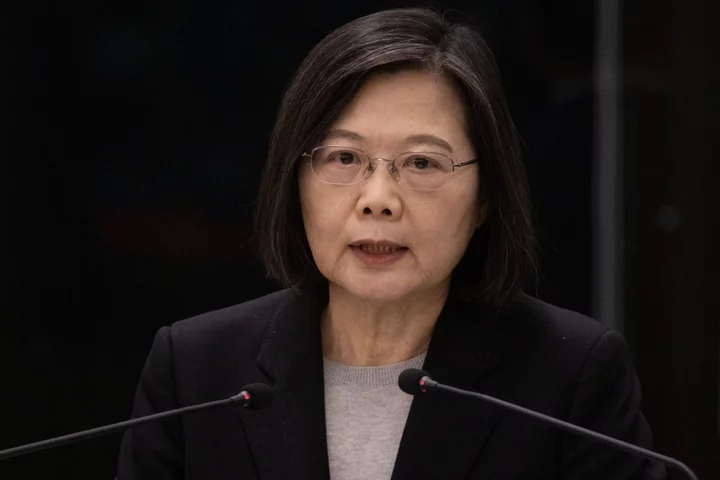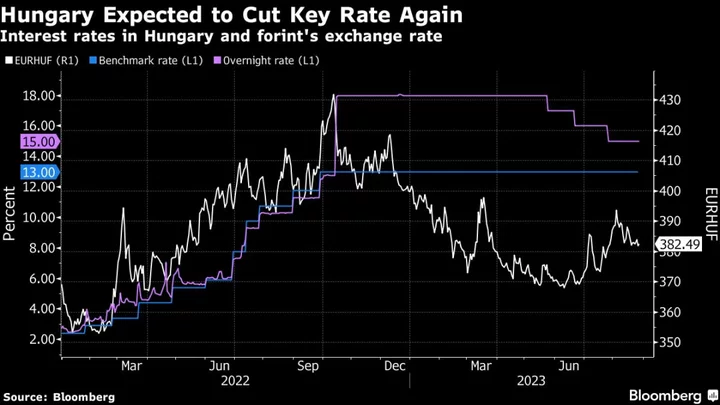China Evergrande Group said its billionaire chairman Hui Ka Yan is suspected of committing crimes, escalating the legal peril for a real estate tycoon whose indebted conglomerate has saddled investors, homeowners and suppliers with billions in losses.
Authorities notified Evergrande that Hui has been subject to “mandatory measures,” due to “suspicion of illegal crimes,” according to a company statement to the Hong Kong stock exchange Thursday. It didn’t elaborate on what the measures entail or what crimes he may have committed. The company’s shares will remain halted until further notice, Evergrande said.
The announcement comes a day after people familiar with the matter told Bloomberg News that Hui was taken away by Chinese police earlier this month and put under so-called residential surveillance, a type of police action that falls short of formal detention or arrest. While details of the allegations against Hui remain unclear, authorities earlier this month detained some staff at Evergrande’s wealth management arm. The unit said on Aug. 31 that it couldn’t make payments on products held by individual investors because of a liquidity crunch.
Hui’s accelerating downfall creates fresh uncertainty over the fate of Evergrande after setbacks to its restructuring plan in recent days roiled markets and raised the risk of a liquidation. It also casts another shadow over China’s beleaguered real estate market, which is headed into the crucial Golden Week sales period. It’s likely to raise anxiety among China’s other property tycoons, many of whom are facing similarly dire financial straits. Hui was one of the country’s most politically connected tycoons and among the richest people in Asia in 2017, before President Xi Jinping started his campaign to rein in China’s property industry.
Hui’s status under residential surveillance means he’s unable to leave the location designated by police, meet or communicate with others without approval, based on China’s Criminal Procedure Law. Passports and identification cards must be handed to police but the process shouldn’t exceed six months, according to the law.
The mandatory, or coercive measures cited in the Evergrande statement can take several forms, including summons, release on bail and residential surveillance, detention and arrest, according to the procedure law. The measures can be enforced by the police, courts or prosecutors.
Other people taken into custody recently include Peter Xu, one of Hui’s sons, China Business News reported.
Evergrande sits at the center of a years-long property crisis that has hurt the Chinese economy and hammered confidence in the housing market. Last week, the developer said it scrapped key creditor meetings and has to revisit its plan to restructure its offshore debt. Since then, it has disclosed it was unable to meet regulatory qualifications to issue new bonds — a key component of the debt overhaul — while its mainland unit failed to repay an onshore bond.
“There is almost zero possibility that the finances of Evergrande will stabilize let alone improve,” said Willy Lam, an adjunct professor at the Chinese University of Hong Kong who has authored several books about Chinese politics.
A Bloomberg Intelligence gauge of Chinese developer stocks dropped 0.6% on Thursday to lowest level since 2011. Homebuyer sentiment remains fragile ahead of a key holiday sales period that will test the effectiveness of stimulus measures rolled out in recent weeks.
The son of a wood cutter who grew up in poverty, Hui built Evergrande into China’s largest developer by using leverage to buy massive tracts of land and scoop up rivals, before branching out into industries ranging from bottled water to professional soccer and electric vehicles.
He was once Asia’s second-richest person, only to see his net worth slump as his property empire crumbled. Hui is now worth about $1.7 billion, down from $42 billion in 2017, according to the Bloomberg Billionaires Index. Evergrande has 2.39 trillion yuan ($327 billion) in liabilities.
The 64-year-old has been a Communist Party member for more than three decades. In 2008, he was elected to join the Chinese People’s Political Consultative Conference, an elite group comprising government officials and the biggest names in business. He later secured two other five-year terms.
Things took a turn for the worse in 2021, when Evergrande officially became a defaulter and authorities from its home province of Guangdong led what is poised to be one of the nation’s biggest debt restructurings.
Hui had been part of the CPPCC’s elite 300-member standing committee since 2013, but he was told not to attend the annual convention in March last year as his property group became the biggest casualty of the nation’s credit crunch.
China’s central bank has blamed Evergrande’s demise on its “own poor management” and “reckless expansion,” and the government has urged Hui to use his fortune to help repay investors.
“Evergrande’s recent negative headlines couldn’t have come at a worse time as Beijing pushes hard to revive homebuying,” said Neo Wang, Evercore ISI’s New York-based managing director for China research.
--With assistance from David Scanlan, K. Oanh Ha, Jacob Gu and Li Liu.
(Adds context in third and fourth paragraphs)

